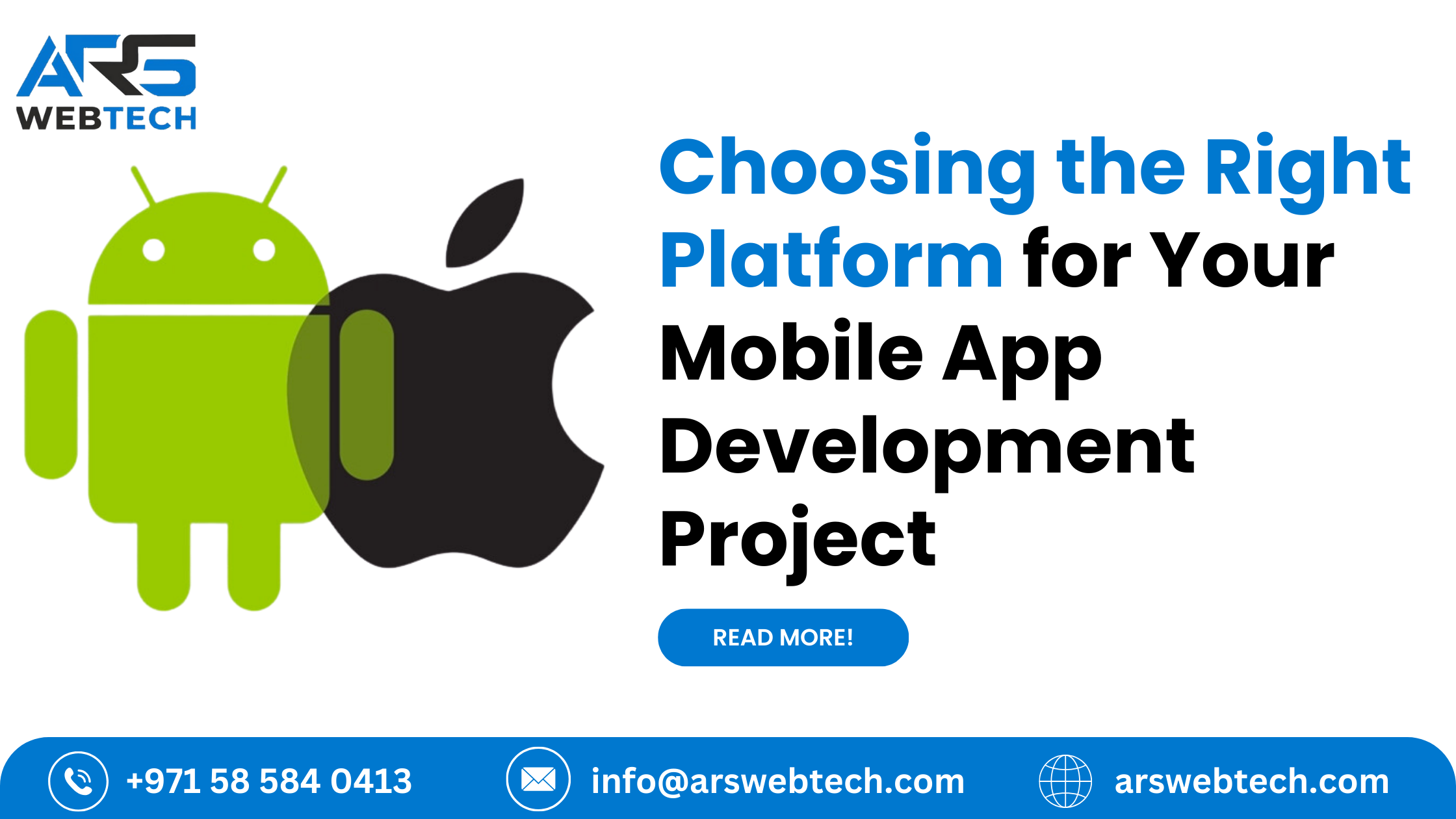Embarking on a mobile app development project is an exciting journey filled with creativity and innovation. One of the earliest and most crucial decisions you'll face is selecting the platform on which your app will thrive. With multiple platforms available, each catering to different user bases and device types, making the right choice requires careful consideration. In this blog, we'll guide you through the process of choosing the optimal platform for your mobile app development project, ensuring that your app reaches its intended audience and achieves the desired success.
Understanding Platform Options:
Before diving into the decision-making process, it's essential to have a clear understanding of the primary platforms available for mobile app development:
-
iOS (Apple): iOS powers Apple devices, including iPhones, iPads, and iPod Touch. The App Store is the exclusive distribution platform for iOS apps.
-
Android (Google): Android is the operating system for a vast array of smartphones and tablets. Google Play Store is the primary marketplace for Android apps.
Factors Influencing Your Decision:
-
Target Audience: Consider the demographics, behaviors, and preferences of your target audience. Are they more inclined towards iOS devices, Android devices, or a mix of both?
-
Market Share: Android holds a larger global market share, while iOS users tend to spend more on apps. Analyze which market aligns better with your app's goals.
-
Monetization Strategy: Different platforms offer varying monetization opportunities. iOS users often have higher willingness to pay for apps, while Android offers a larger user base for ad-supported models.
-
Development Costs: The cost of developing an app can vary depending on the platform. iOS apps might be costlier due to the need for fewer device and OS version adaptations.
-
App Store Guidelines: Each platform has its set of app store guidelines and approval processes. Familiarize yourself with these to ensure your app meets the required standards.
-
User Experience: iOS and Android have distinct design guidelines (Human Interface Guidelines for iOS, Material Design for Android). Choose the platform that aligns better with your app's intended user experience.
-
Technical Considerations: Android's open ecosystem allows for greater customization, while iOS provides a controlled environment that ensures consistent performance.
Making the Decision:
-
Research: Conduct thorough research on your target audience, competitor apps, and market trends. This information will provide insights into user preferences and platform dominance.
-
Prototype Testing: Develop a basic prototype for both platforms to test the app's functionality and user experience. User feedback from these tests can help guide your decision.
-
Resource Availability: Assess the skills of your development team. If you have expertise in a specific platform, it might be more efficient to build on that platform.
-
Hybrid Options: Explore hybrid app development frameworks like React Native or Flutter. These allow you to develop a single codebase that can be deployed on both iOS and Android.
Conclusion:
Choosing the right platform for your mobile app development project is a pivotal decision that will influence your app's success and reach. By carefully evaluating factors such as your target audience, market dynamics, monetization strategy, and technical considerations, you can make an informed choice that aligns with your app's goals. Whether you opt for iOS, Android, or a hybrid approach, remember that adaptability, user-centric design, and continuous improvement are key to crafting an exceptional mobile app that resonates with your audience and stands out in the competitive app market.
Last Updated at: 09-09-2023






